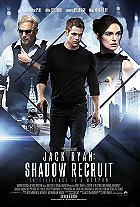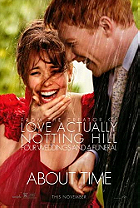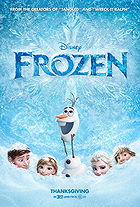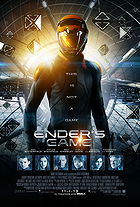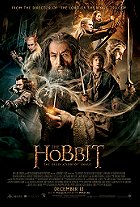2013's The Wolf of Wall Street is both an idiosyncratic Martin Scorsese picture and a considerable change of pace for the seasoned filmmaker. After dabbling in the PG-rated, family-oriented Hugo in 2011, Scorsese returns to his old stomping grounds here, creating an insane R-rated romp beset with profanity and nudity, not to mention scenes of drugs, alcohol and intense violence. Yet, The Wolf of Wall Street can also be considered Scorsese's first outright comedy, as it's predominantly pitched at a darkly comic tone and there are countless belly-laughs to be had. It's a satiric document of boys behaving badly, but Scorsese also permeates the production with plenty of gravitas, finding a perfect tonal balance to allow us to both take the material seriously and have fun along the way. Whereas Hugo was sweet and warm, Wolf is ruthlessly profane and hedonistic, and it deserves more acclaim than it appears to be receiving.

An ambitious kid fresh out of college, Jordan Belfort (Leonardo DiCaprio) moves to the Big Apple seeking to strike it rich on Wall Street. Starting at the lowest rung of a big stock trading company, Jordan learns the ropes from seasoned big dog Mark Hanna (Matthew McConaughey), working to sell worthless stock to customers regardless of whether or not the client will benefit from the transaction. But 1987's Black Monday puts Jordan out of the job, and he soon finds himself pushing penny stocks on hapless blue collar workers, using his newfound talents to dumbfound his colleagues. Meeting Donnie Azoff (Jonah Hill), Jordan eventually establishes brokerage firm Stratton Oakmont with help from his friends and acquaintances hungry for cash. Before long, Jordan makes a massive impact in the industry, finding himself with more money, drugs and women than he knows what to do with, eventually disposing of his first wife to marry sexy former model Naomi (Margot Robbie). But while Jordan is swimming in fortune, FBI Agent Patrick Denham (Kyle Chandler) begins investigating the company's illegal practises, waiting for any opportunity to bring down the arrogant stock titan.
There's a good chance that 99% of the folks who watch The Wolf of Wall Street will have no idea about how the stock market works, or what exactly Jordan is doing to get himself filthy rich. It's thus a testament to the efficient screenplay and Scorsese's taut direction that, in basically no time at all, it's possible to get a firm enough grasp on what Jordan is doing and why this results in his insane wealth. Wolf is hugely convoluted due to its stock market machinations and various subplots involving the sizeable ensemble, yet it works; it's a structural masterpiece, as Scorsese guides the narrative with a storytelling sleight-of-hand that not many can equal, let alone top. There are no heroes in this story, just egotistical businessman determined to suck money from rich, gullible clients who are duped into buying stocks. Scorsese is not exactly flattering to this industry - the cheeky satiric message of Wolf is, of course, that there's no difference between real stockbrokers and Jordan's gang of fraudulent criminals.

Adapted from Jordan Belfort's real-life memoirs by Terence Winter (Get Rich or Die Tryin'), Wolf is a full meal, clocking in at a mammoth three hours in length. To be sure, the movie revels in bad behaviour, showing scene upon scene involving drugs, alcohol, prostitutes and other acts of utter debauchery, making its polarising reception quite understandable. In fact, a lot of people basically hate Wolf due to its excessive length, and that's a fair standpoint, but the excess is essentially the point. It's a ballsy move for any filmmaker to make a candid document of this type of lifestyle, and it worked for this reviewer. To cut back on the excess or spend more time focusing on these guys getting their comeuppance would dilute the story's message and impact. Thanks to the length, we grow to understand why these guys do what they do; because it's fun. It's morally wrong, sure, but Scorsese pitches the insanity at just the right tone, allowing us to laugh both at and with the characters. Scorsese stages some events like full-blown cartoons, including a hilarious scene of physical comedy in which Jordan and Donny become more or less paralysed due to drugs. Even funnier is seeing Jordan breaking from his drug coma by snorting cocaine, taking inspiration from Popeye as he watches the character become super-charged after a serving of spinach.
Nobody mounts three-hour epics quite as deftly as Scorsese, who demonstrates a firm grasp on the material. The Wolf of Wall Street is an extremely slick motion picture benefitting from top-notch production values that one would expect from a $100 million movie. Moreover, Scorsese's sense of pacing is simply immaculate. This is one long movie, but it's surprisingly digestible and light on its feet, which is a feat that not many can achieve other than Scorsese. However, there is evidence that the picture was trimmed. Wolf was delayed by a month to facilitate more time for Scorsese to complete the film, as the first cut ran for almost four hours and would've been NC-17. Some of the editing feels jarring and iffy, suggesting that segments of scenes were taken out, and one can't help but wonder what a more complete edit might look like.

This is career-best work for DiCaprio, who would do wise to stick by Scorsese for further projects. It's such an excellent performance due to DiCaprio's commitment to the material; he embodies Jordan Belfort body and soul, displaying exceptional passion and never breaking focus. Scorsese is unapologetic in showing Jordan as he is, not diluting the material to make him likeable, hence the wrong actor could've resulted in disaster. Luckily, DiCaprio is riveting throughout, and he's aided by the superb Jonah Hill who shows himself to be more than a one-trick comedic pony. Hill was so determined to work with Scorsese that he accepted absolute minimum wage for the shoot, and it pays off handsomely. Also standing out is Australian actress Margot Robbie, who's both beautiful and talented as Jordan's wife Naomi, espousing a masterful Boston accent and displaying as much simmering passion as DiCaprio. Even more impressive is veteran filmmaker Rob Reiner, who's an absolute scene stealer playing Jordan's hot-headed father. Reiner amasses laughs with confidence, and makes a hugely positive impression. Also of note is Matthew McConaughey, who lights up the screen despite his very limited screen-time. The Wolf of Wall Street is a magnificent acting showcase, with many other performers showing up throughout the picture, all of whom hit their marks.
The Wolf of Wall Street is a full-blown masterpiece, one of Scorsese's greatest achievements and by far and away the best motion picture of 2013. It's funnier than most comedies, sexier than most romances, and more thrilling than most action movies. Furthermore, it trumps American Hustle with ease, as Scorsese creates a far more involving narrative than David O. Russell's overrated period piece. It's rare to see such an effectively entertaining three-hour movie, and it's even rarer to see such a spot-on mix of spellbinding human drama, provocative social commentary and terrific dark comedy. You need to get this movie in front of your eyes.
9.3/10
 Login
Login
 Home
Home 183 Lists
183 Lists 1665 Reviews
1665 Reviews Collections
Collections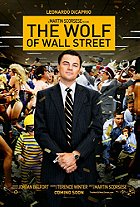
 0 comments,
0 comments, 